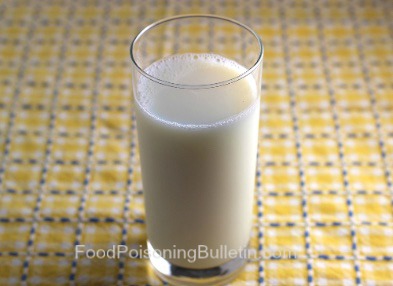An E. coli outbreak in Kentucky in September 2014 was associated with raw milk consumption, according to the Kentucky Public Health Department. Five children in North Central Kentucky were sickened after drinking unpasteurized milk. Four of the children developed hemolytic uremic syndrome (HUS), a serious and life-threatening complication of this infection and had to be hospitalized.
 Dr. Stephanie Mayfield, DPH Commissioner said in a statement, “at this time, we know that all of the children consumed unpasteurized milk, which is different from the milk and dairy products you purchase at the grocery store. Unpasteurized milk is dangerous and has not undergone a process to kill bacteria before it is consumed, meaning it could contain disease-causing agents such as E. coli.”
Dr. Stephanie Mayfield, DPH Commissioner said in a statement, “at this time, we know that all of the children consumed unpasteurized milk, which is different from the milk and dairy products you purchase at the grocery store. Unpasteurized milk is dangerous and has not undergone a process to kill bacteria before it is consumed, meaning it could contain disease-causing agents such as E. coli.”
Attorney Fred Pritzker, who represents people sickened in food borne illness outbreak, said, “Children are at great risk of serious complications from E. coli infections. Giving them raw milk and other risky products can have life-threatening complications that parents will not necessarily forsee.”
The sale of raw milk is not legal in the satiate of Kentucky. But people sometimes travel out of state to purchase it, or buy it directly from the farmer who raises the cows. Mayfield added, “raw milk, no matter how carefully it is produced, may contain pathogens. Just as we recommend that you don’t eat raw hamburger, pork, or fish, we also advise that consumers don’t drink raw, unpasteurized milk.”
The symptoms of an E. col infection include vomiting, diarrhea that is usually bloody and/or watery, a fever, and stomach cramps. Hemolytic uremic syndrome can develop after this infection; the symptoms of that complication include pale skin, lethargy, irritability, unexplained bruises, bleeding from the nose or mouth, and reduced urine output. Bloody urine and swelling of the hands, feet, or entire body may occur.
Treatment of HUS is difficult; some children may need transfusions or even kidney dialysis in the future, even if they recover from the initial infection. HUS can lead to seizures, stroke, coma, convulsions, gall stones, kidney failure, blindness, acute respiratory distress syndrome, and death. Immediate hospitalization is necessary when a child develops this complication.




